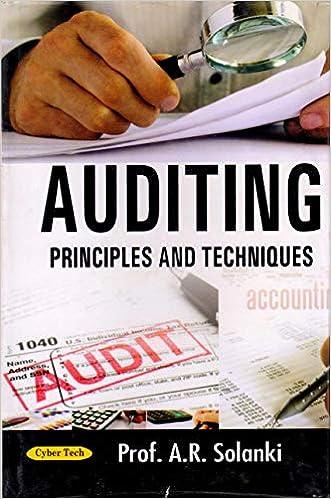Question
) Yolanda wishes to begin saving for retirement and plans to put aside $5,000 this year. Her current marginal tax rate on ordinary income is
) Yolanda wishes to begin saving for retirement and plans to put aside $5,000 this year. Her current marginal tax rate on ordinary income is 37%. When she retires in 40 years, she expects that her marginal tax rate on ordinary income in retirement will decline to 25%. She expects the tax rate on capital gains to remain constant at 20%.
Yolanda is confused about her retirement savings options and needs your advice. She is considering three options:
Alternative 1: Contribute $5,000 after-tax ($I = $5,000) to a Roth IRA earning 6% annual return.
Alternative 2: Contribute $5,000 after-tax ($I = $5,000) to a traditional deductible IRA earning 6% annual return.
Alternative 3: Invest $5,000 after-tax ($I = $5,000) in corporate growth stock, paying no annual dividends but appreciating in value. The corporation Yolanda is considering projects that it will earn a before-tax return of 8%. After paying corporate tax at 21 percent, remaining corporate profit will be reinvested.
Provide a formula for use in calculating Yolandas retirement accumulation from each of these three savings options.
Calculate Yolandas after-tax accumulations in 40 years and the annualized after-tax rate of return on each alternative.
Which retirement savings option would you recommend to Yolanda? Provide calculations to support your conclusion.
Your textbook discusses three basic types of tax planning (shifting income from one type to another, one pocket to another, and one time period to another). Which one or more of these basic types explains the tax-related value of investing through a traditional deductible IRA, or any qualified pension plan? Briefly explain your answer.
Now suppose that, because of the income limitations, Yolanda does not qualify to contribute to either a traditional deductible IRA or a Roth IRA. Would you recommend that Yolanda save for retirement using a non-deductible traditional IRA or by investing in the corporate growth stock (alternative 3 above)? Support your answer by calculating the after-tax rates of return from these two alternatives, assuming a 6% before-tax rate of return on the non-deductible traditional IRS and that Yolanda retires in 40 years.
Step by Step Solution
There are 3 Steps involved in it
Step: 1

Get Instant Access to Expert-Tailored Solutions
See step-by-step solutions with expert insights and AI powered tools for academic success
Step: 2

Step: 3

Ace Your Homework with AI
Get the answers you need in no time with our AI-driven, step-by-step assistance
Get Started


